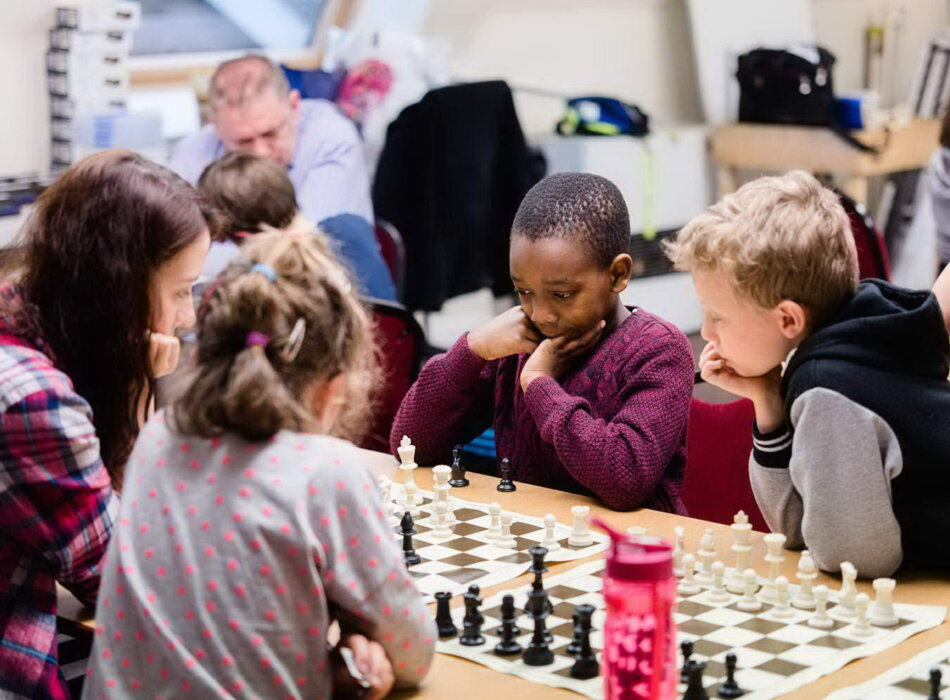The Global Chess Festival organised by Judit Polgar can be described in many ways but the main feeling when you enter the glorious venue used, the Castle Garden Bazaar on the Danube in the center of Budapest is “fun”. There is an abundance of colour and music and noise that immediately attacks your senses. As a child you have a huge variety of activities to choose from, that is the idea: to show chess as an enjoyable activity that can be shared around the world as a common language.
Since 2007 Judit Polgar has organized a yearly chess festival in Budapest, which started as a 100-board simul given by the three famous Polgar sisters. Through the years it has grown into a highly prestigious event, in which well-known Hungarian sportsmen, artists, musicians and more importantly an enormous number of children take part. In 2015 the event became known as the Global Chess Festival. The aim is to showcase chess as an educational and social activity that can be enjoyed by children all around the world. Other junior organisers are encouraged to hold similar events on the same day and make it truly an international day of chess.
There were obvious highlights like two simultaneous exhibitions given by Sofia and Judit Polgar with Dutch grandmaster Loek Van Wely proving adjudications towards the end all helped fuel the festival atmosphere. Especially when Judit did not quite agree with some of Loek’s evalautions! The serious event, the Highlander Cup, was held in a soundproof room in a theatre atmosphere with the crowd in darkness with commentary available through headphones as well as the normal live Internet coverage so the rest of the world could also see players of the calibre of Boris Gelfand, Rustam Kasimdzhanov and Zoltan Almasi.
The standard of the chess during the simul was quite high although the main aim of the Festival was not to find the next champion, but to highlight chess as an international activity that can bring people all over the world together. To show chess as a fun, educational and social activity, the motto of the Global Chess Festival was “Chess Connects Us” and judging from the smiling faces seen throughout the day I believe the festival was certainly a very positive experience for the large number of children who visited. Another important idea was to show the “1000 faces of Chess”, that age, gender or cultural background are no barrier to enjoying playing chess with an old friend or a new friend you might have just made online. One can only hope it can continue and expand around the world.
The youngest competitor was a young lady from England!

A lot of work has gone into the Global Chess Festival over the years and not just for the one day every year. At the 2015 Frankfurt Book Fair an international jury of experts evaluated the best European products and the special prize of the Best European Learning Materials Awards (BELMA), the Merit Award, was given to Judit Polgar’s Chess Palace Program.
An event like this cannot be run without the help of numerous people, Judit’s husband Gustav and sister Sofia worked tirelessly throughout the day. Anna Rudolf was not only helping to organise but doing interviews and then commentating online. Special guests who came to Budapest to help out were Loek Van Wely and Jeroen Van den Berg from the Netherlands, Daniel Yarur and his lovely daughter, Jugar from Chile, as well all the participants of the Highlander Cup. Add in the huge production team, the arbiters and you can see that chess can truly brings people together and connects them!
source: ChessBase
Global Chess Festival website






